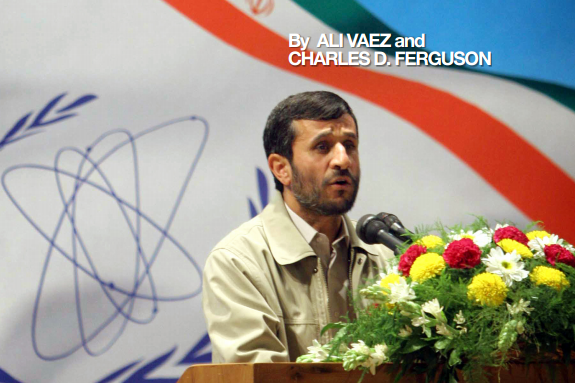
Towards Enhanced Safeguards for Iran’s Nuclear Program
Iran’s controversial nuclear program has been front and center on the international stage for more than eight years. Despite negotiations, sanctions, and political tug-of-war, the United States and its allies have yet to tame Iran’s atomic phoenix. At the center of this nuclear standoff is Iran’s controversial uranium enrichment program and efforts to obtain full nuclear fuel-cycle capabilities. To alleviate concerns about the intended nature of these activities, the United Nations Security Council (UNSC) has demanded -through six resolutions – that Iran suspend enrichment activities as well as construction of a heavy-water research reactor. Yet, Iran has opted to pay no heed to these resolutions and despite numerous proposals from different sides, the stalemate persists.
Dr. Charles D. Ferguson and Dr. Ali Vaez, authored a FAS report (PDF) analyzing the outstanding issues regarding Iran’s nuclear program, and provide recommendations to the major stakeholders in this debate including Iran, the United States, Russia and the International Atomic Energy Agency (IAEA).
Additionally, the report proposes a multipronged approach to resolving this deadlock, including enhanced safeguards and positive-sum diplomacy with incentives for Iran and other aspiring nuclear states.
The Federation of American Scientists applauds the United States for declassifying the number of nuclear warheads in its military stockpile and the number of retired and dismantled warheads.
North Korea may have produced enough fissile material to build up to 90 nuclear warheads.
Secretary Austin’s likely certification of the Sentinel program should be open to public interrogation, and Congress must thoroughly examine whether every requirement is met before allowing the program to continue.
Researchers have many questions about the modernization of Pakistan’s nuclear-capable aircraft and associated air-launched cruise missiles.